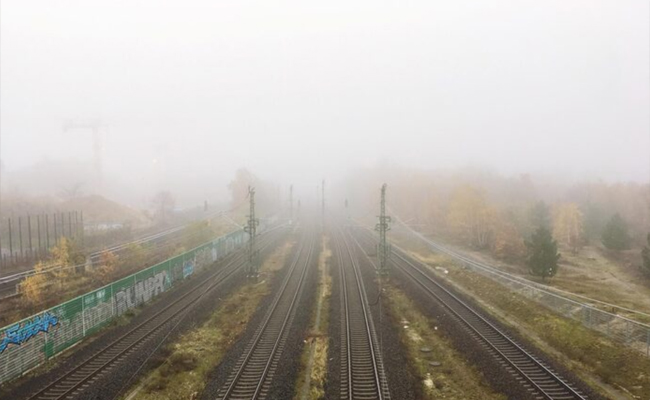New Delhi, Mar 3: The Congress on Friday attacked the BJP over a Karnataka MLA's son being arrested for allegedly accepting a bribe, with AICC chief Mallikarjun Kharge saying it proves that it is a "40 per cent commission government" in the state.
Lokayukta sleuths recovered unaccounted cash of more than Rs 6 crore from the house of BJP MLA K Madal Virupakshappa's son Prashanth Madal close on the heels of his arrest for allegedly accepting a bribe of Rs 40 lakh.
Prashanth, the chief accountant of the Bangalore Water Supply and Sewerage Board, was caught red-handed on Thursday evening while accepting the bribe from a contractor at the Karnataka Soap and Detergents Limited (KSDL) office. The MLA is the Chairman of KSDL, makers of 'Mysore Sandal' soap.
"It is very bad. It has been proved that what the people were alleging that this is a 40 per cent commission government," Kharge told PTI.
The Lokayukta should quickly take action against the "culprits who are doing all this", he added.
Asked whether this incident would "benefit" Congress in the run up to the election, Kharge said, "We don't make allegations to get votes. In the interest of the party, we will not just exploit such a situation but we have been saying that this (BJP) is a 40 per cent commission government."
"Lots of corruption is there (in the government), and a lot of money is misused, and no project is qualitatively completed," he said.
Addressing a press conference at the AICC headquarters here, Congress spokesperson Supriya Shrinate said the BJP's stink of corruption has not even spared the 'Mysore sandal' soap.
"People are distressed and have made up their mind for change. No matter how many road shows and rallies you (Prime Minister Narendra Modi) hold, people have made up their mind. We have constantly stood with the people and raised voice against corruption," she said.
Former Karnataka chief minister Siddaramaiah said, "Whenever we said there is rampant corruption and 40 per cent commission is demanded from contractors, the chief minister asked us to furnish details. Isn't this evidence that the 40 per cent commission government is functioning in the state."
The Congress said it would lay siege to the chief minister's residence on Race Course road in Bengaluru on Saturday demanding that Basavaraj Bommai quit his post taking moral responsibility.
Facing the heat, Virupakshappa, MLA from Channagiri constituency in Davangere district, on Friday tendered his resignation from the post.
In his resignation letter to the Bommai, he said there is no "relation" between him and the Lokayukta raid which he termed as a "conspiracy" against him and his family.
ಕರ್ನಾಟಕಕ್ಕೆ BJP ಆಡಳಿತದ ಬಹುದೊಡ್ಡ ಕೊಡುಗೆಯೆಂದರೆ 'ಕರಪ್ಶನ್ ಕ್ಯಾಪಿಟಲ್' ಎಂಬ ಬಿರುದು. 40% ಕಮಿಷನ್ ಸರ್ಕಾರದ ಆಡಳಿತದಿಂದ ಅಧಿಕಾರಿಗಳು, ಗುತ್ತಿಗೆದಾರರು, ಜನಸಾಮಾನ್ಯರು ಬೇಸತ್ತಿದ್ದಾರೆ. ಭ್ರಷ್ಟ BJP ವಿರುದ್ಧ ಹೋರಾಡೋಣ ಬನ್ನಿ ಕೈಜೋಡಿಸಿ.
— DK Shivakumar (@DKShivakumar) March 3, 2023
ಸ್ಥಳ - KPCC ಕಚೇರಿ, ಬೆಂಗಳೂರು
ದಿನಾಂಕ: 04/03/2023 ಶನಿವಾರ
ಸಮಯ -ಬೆಳಿಗ್ಗೆ 10 ಗಂಟೆ pic.twitter.com/rGmSE7PYc0
ಸಿಎಂ ಬೊಮ್ಮಾಯಿ, ಗೃಹ ಸಚಿವರು, ಕೆಲವು ಸಚಿವರು ಶಾಸಕ ಮಾಡಾಳ್ ವಿರೂಪಾಕ್ಷಪ್ಪ ಅವರನ್ನು ರಕ್ಷಿಸುವ ಪ್ರಯತ್ನ ಮಾಡುತ್ತಿದ್ದಾರೆ.
— Karnataka Congress (@INCKarnataka) March 3, 2023
ಅಕ್ರಮ ಹಣ ಶಾಸಕರ ಮನೆಯಲ್ಲಿ ಸಿಕ್ಕಿದೆ, ಈ ಪ್ರಕರಣದಲ್ಲಿ ಶಾಸಕರು ಎ1 ಆಗಿದ್ದು, ಸರ್ಕಾರ ಅವರ ರಕ್ಷಣೆಗೆ ಮುಂದಾಗಿದೆ.
ಹೀಗಾಗಿ ಲೋಕಾಯುಕ್ತ ಅಧಿಕಾರಿಗಳು ಶಾಸಕರನ್ನೇ A1 ಆಗಿ ಮಾಡಬೇಕು.
- @RameshBabuKPCC pic.twitter.com/Upgj1ZPr7R
Let the Truth be known. If you read VB and like VB, please be a VB Supporter and Help us deliver the Truth to one and all.
Kolkata (PTI): Three persons died and three others were injured after being hit by a train amid dense fog on Saturday, while travelling to attend Prime Minister Narendra Modi's rally at Taherpur in West Bengal's Nadia district, a senior official said.
The incident occurred between Taherpur and Badkulla railway stations under the Sealdah-Krishnanagar section of Eastern Railway, he said.
Modi, whose helicopter could not land at Taherpur due to dense fog and low visibility, condoled the death of the “BJP workers” in his virtual address from Kolkata airport.
“I have come to know that some BJP workers, while travelling to the rally, lost their lives in a rail accident. My condolences are with the families of those who have lost their loved ones, and I pray for the speedy recovery of the injured,” Modi said.
The Eastern Railway official told PTI that the incident occurred in the morning when these people, who were travelling by a bus, had stopped the vehicle and walked to the railway tracks to answer nature's call.
"While three persons died on the spot, two others with injuries were admitted to a local hospital," he said.
Another person with minor injuries was released after having been administered first aid, the official said.
The deceased have been identified as Ramprasad Ghosh (74), Shaktipada Sutradhar (55) and Gopinath Das (38).
Meanwhile, Mahua Moitra, Trinamool Congress MP from Krishnanagar constituency in Nadia district, alleged that the BJP ignored the incident and went ahead with the rally.
"Terrible tragedy hushed up at altar of @narendramodi ego. @BJP4India supporters brought from far Murshidabad for PM rally in Ranaghat today," she said in a post on X.
"4 went to answer nature's call and were killed by 31814 down local train near Taherpur. BJP ignored, blacked out & went ahead with rally," Moitra claimed.
Reacting to her remarks, the West Bengal BJP, in a post on X, asserted that the TMC "has always been adept at milking tragedies", and was being "disrespectful to the unfortunate victims of this tragedy".
The TMC alleged that BJP leaders have not shown "neither concern nor compassion" over the mishap.
"The loss of three lives in Taherpur should have united everyone in grief. But @BJP4India leaders showed neither concern nor compassion," it said in another post on X.
"At this painful moment, Smt @MamataOfficial and Shri @abhishekaitc put humanity above party lines and stood beside the families of the deceased," the party said.
TMC’s on-ground leaders promptly reached out to the grieving family members, ensuring them of help and assistance, it said.
"While Delhi’s rulers chase Bengal with arrogance, our leadership chose empathy. This is the difference between politics of power and politics of people!" the TMC added.





